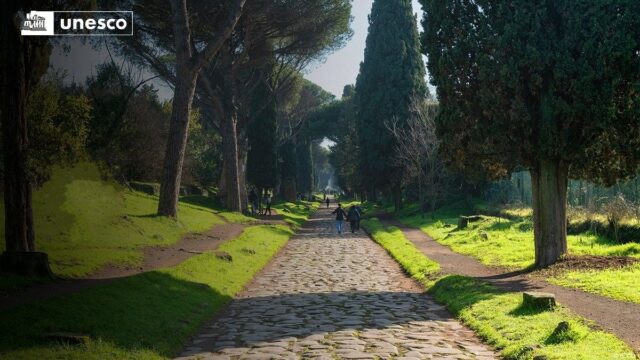With 60 recognized sites, Italy remains the country with the largest number of UNESCO heritage sites.
Italy continues to top the World Heritage list UNESCO. The World Heritage Committee, meeting in New Delhi for its 46th session, has decided inscribe the “Via Appia. Regina Viarum” on the World Heritage Listthus becoming the 60th recognized Italian site.
The list also includes the residence Ensemble Schwerin in Germany, the Niah National Park in Malaysia, the Al-Faw archaeological zone In Saudi Arabia, the sculpture group of Constantin Brancusi in Târgu Jiu and the Borders of the Roman Empire in Dacia, both in Romania.
Candidacy of the Appian Way promoted by the Ministry of Culture
The candidacy was promoted for the first time directly by the Ministry of Culture, which coordinated all stages of the process and prepared all the necessary documentation for the application for inscription on the World Heritage List. Many institutions collaborated in the process: four Regions (Lazio, Campania, Basilicata and Apulia), 13 metropolitan cities and provinces, 74 municipalities, 14 parks, 25 universitiesnumerous representatives of territorial communities, as well as the Ministry of Foreign Affairs and International Cooperation and the Pontifical Commission for Sacred Archeology of the Holy See.
The history of the Appian Way
650 kilometers long, the ancient Appian Way crossed central and southern Italy. It was the first of the great roads of Romabuilt with innovative techniques, true engineering masterpieces civil that complemented the natural pathways and constituted the most enduring monuments of Roman civilization. He layout, begun in 312 BC . by the censor Appius Claudius Ciego to connect Rome with Capua, it was later extended to Benevento, Venosa, Taranto and Brindisi, a bridgehead to Greece and the East.
Conceived for military needs, the Appian Way immediately became the via major commercial communications and major cultural transmissions and, over time, it became the model for all subsequent Roman public roads, as well as, in a certain sense, the origin of the complex road system of the Empire, which is also the basis of the current communications network of the basin. Mediterranean.
The names with which the ancient authors themselves defined it – insignis, nobilis, celeberrima, regina viarum – attest all political, administrative, economic, social and propaganda values that earned him his thousand-year fortune, recalls the Italian Ministry of Culture.
“UNESCO has captured the exceptional universal value of an extraordinary work of engineering that over the centuries has been essential for commercial, social and cultural exchanges with the Mediterranean and the East,” declared the Minister of Culture, Gennaro Sangiuliano.
“This recognition adds to the extraordinary success achieved less than a year ago by italian opera“commented the Undersecretary of Culture in charge of UNESCO, Gianmarco Mazzi.







